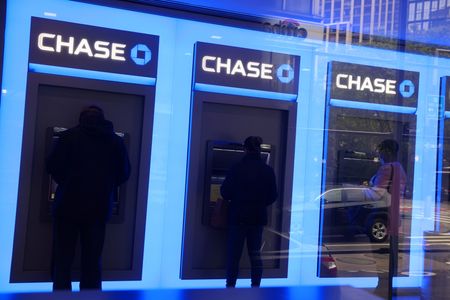By Hannah Lang
(Reuters) – The share of Americans who did not have a checking or savings account fell last year to the lowest level since the financial crisis, according to a new study by a U.S. banking regulator released Tuesday.
Just 4.5% of 132.5 million U.S. households were considered “unbanked” in 2021, data from the Federal Deposit Insurance Corporation (FDIC) show. That rate, which represents about 5.9 million U.S. households, is almost a full percentage point lower than when the survey was last conducted in 2019, and is the lowest level recorded since the FDIC began conducting the survey in 2009.
The FDIC attributed the decline to socioeconomic gains across U.S. households, particularly increases in income and education.
Among recently banked households — those who had a bank account when the survey was conducted but did not at some point in the 15 months before — one-third reported that receiving a government benefit payment like unemployment benefits or stimulus checks contributed to their decision to open a bank account since March 2020, at the onset of the COVID-19 pandemic.
Black and Hispanic families were more likely to be unbanked than their White counterparts at every income level, the data showed.
More than 21% of respondents who lacked bank accounts said they did not have enough money to meet minimum balance requirements, while 13.2% cited a distrust of banks as their main reason for not having an account.
Another 14.1% of households were considered “underbanked” in 2021, meaning they had traditional bank accounts but also relied on alternative financial products like payday loans or money orders in the last 12 months.
(Reporting by Hannah Lang in Washington; Editing by Lananh Nguyen in New York; Editing by Andrea Ricci)

